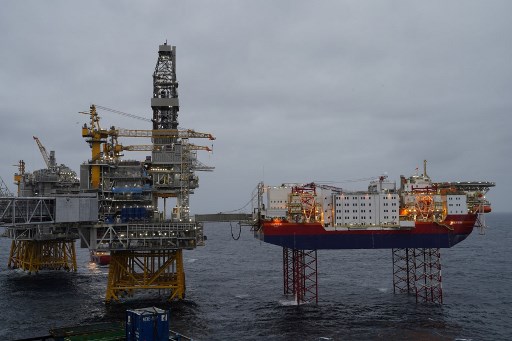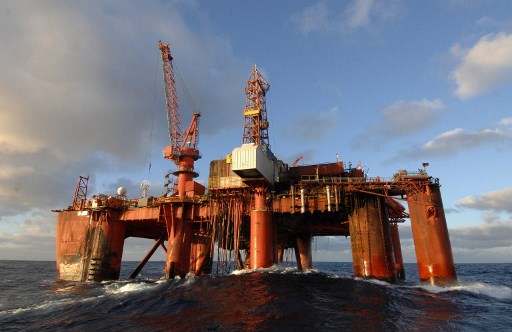
OSLO, Norway (AFP) — Two environmental groups said on Monday they were trying to take the Norwegian state to the Supreme Court for granting oil licenses in the Arctic.
Greenpeace and Natur og Ungdom (Nature and Youth) say oil drilling licenses granted to companies in 2016 should be cancelled because they violate Norway’s constitution, which includes a right to a healthy environment.
They say emissions from oil activities and fossil fuels jeopardize the objectives of the Paris Agreement, which aims to limit warming from climate change to less than 2 degrees Celsius, compared with pre-industrial temperatures.
However, the organizations have already suffered two legal setbacks in both an Oslo district court and an appeals court, which ruled that their concerns were hypothetical as there was no certainty fossil fuels would be discovered.
However, the appeals court judges said CO2 emissions from Norwegian oil should be taken as a whole — meaning not only emissions from the production but also from the use of oil and petrol even outside the country.
“Opening up the pristine areas in the Arctic for oil drilling in the time of climate emergency is not acceptable,” Greenpeace Norway head Frode Pleym said in a statement.

“The use of oil and gas produced in Norway and burned elsewhere contributes to 10 times the domestic emissions of Norway.”
As the largest producer of oil in Western Europe, Norway is struggling to break its dependence on hydrocarbons, which made the country rich and enabled it to amass a sovereign wealth fund of more than one trillion dollars.
“The world has already found more oil, coal and gas than we can burn if we are to avoid catastrophic climate change,” Therese Hugstmyr Woie, head of Natur og Ungdom, said in a statement.
“Of course Norway has a responsibility not to produce more oil than the climate can support.”
The case concerns 10 licenses issued for exploration drilling in the Barents Sea.
The beneficiaries include the Norwegian Equinor (formerly Statoil), the Americans Chevron and ConocoPhillips and the Russian Lukoil.
The Supreme Court is expected to decide whether or not to hear the case in the coming months.
© Agence France-Presse







